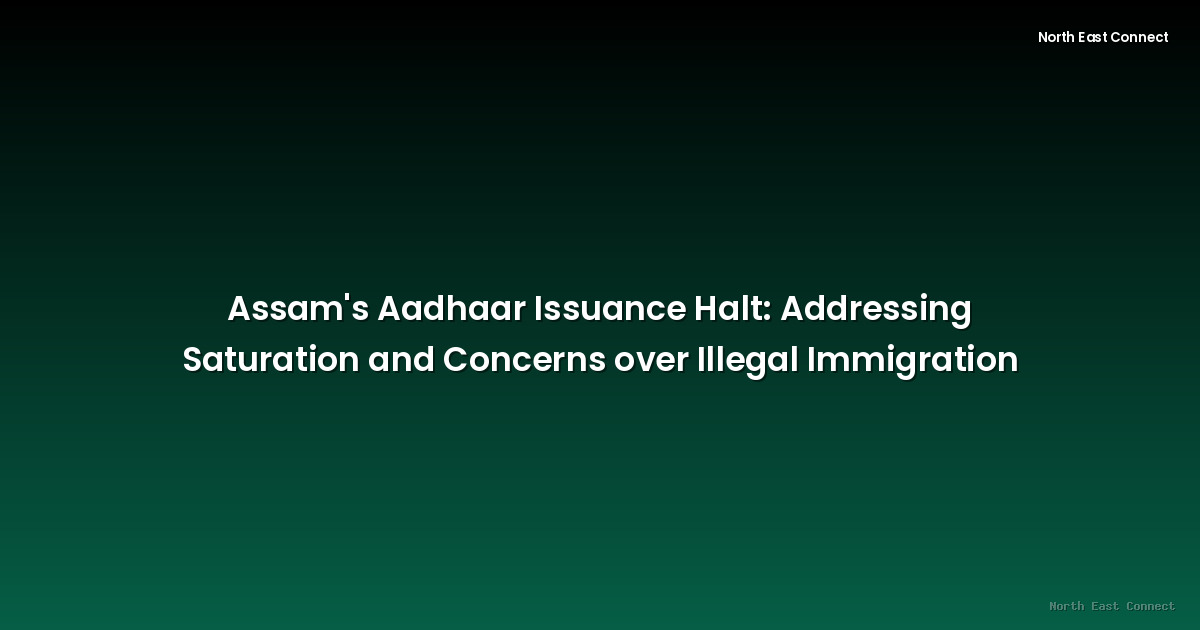2025-08-24 · News
The Assam government has announced a temporary halt to the issuance of Aadhaar cards to adults within the state. This decision, announced by Chief Minister Himanta Biswa Sarma, cites two primary reasons: the perceived saturation of Aadhaar registrations in the state and concerns about the potential enrollment of undocumented Bangladeshi immigrants.
The statement regarding saturation suggests that a significant portion of the eligible adult population in Assam already possesses Aadhaar cards. While the exact figures haven't been officially released, the government implies that further issuance would be redundant or inefficient at this stage. This raises questions regarding the accuracy and completeness of existing Aadhaar data for Assam. Further investigation is needed to determine whether this saturation claim is based on reliable data or broader estimations.
The concern over the potential enrollment of undocumented Bangladeshi immigrants highlights a more complex issue of national identity and border security. The government's rationale suggests that a pause in Aadhaar issuance would allow for a period of review and potentially prevent the further inclusion of individuals not legally entitled to be residents of Assam. This aspect links the Aadhaar policy with ongoing efforts by the state government to address the challenges posed by illegal immigration. The decision is likely to be viewed through this lens and is expected to generate discussion on the connection between Aadhaar and immigration control.
The implications of this decision are multifaceted. For eligible adults who haven't yet enrolled for Aadhaar, the halt presents a temporary obstacle in accessing various government services and benefits which require Aadhaar authentication. This may cause inconvenience and potential delays for citizens. Conversely, supporters of the decision may argue that it's a necessary step to ensure the integrity and effectiveness of the Aadhaar system in Assam.
The government’s decision underscores the ongoing debate surrounding the use of Aadhaar as a comprehensive identification tool within a complex demographic landscape. The balancing act between efficient service provision and ensuring the integrity of national identification databases is a continuous challenge. The suspension emphasizes the need for transparency and clear communication regarding the government's strategy for managing Aadhaar registrations and addressing the challenges posed by undocumented immigration. Future steps and timelines regarding the resumption of Aadhaar issuance for adults in Assam remain to be announced, and further clarification on the government's data and strategy would prove valuable. The pause also raises broader questions about the role of Aadhaar in managing population data and national identity in India. Further developments and official announcements are anticipated. The government's decision is expected to spark debate regarding its potential impact on various aspects of daily life in Assam.







